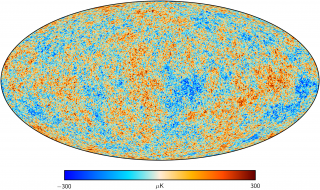Bibcode
Arce-Tord, Carla; Vidal, Matias; Casassus, Simon; Cárcamo, Miguel; Dickinson, Clive; Hensley, Brandon S.; Génova-Santos, Ricardo; Bond, J. Richard; Jones, Michael E.; Readhead, Anthony C. S.; Taylor, Angela C.; Zensus, J. Anton
Referencia bibliográfica
Monthly Notices of the Royal Astronomical Society
Fecha de publicación:
5
2020
Número de citas
12
Número de citas referidas
11
Descripción
The ρ Oph molecular cloud is one of the best examples of spinning dust emission, first detected by the cosmic background imager (CBI). Here, we present 4.5 arcmin observations with CBI 2 that confirm 31 GHz emission from ρ Oph W, the PDR exposed to B-type star HD 147889, and highlight the absence of signal from S1, the brightest IR nebula in the complex. In order to quantify an association with dust-related emission mechanisms, we calculated correlations at different angular resolutions between the 31 GHz map and proxies for the column density of IR emitters, dust radiance, and optical depth templates. We found that the 31 GHz emission correlates best with the PAH column density tracers, while the correlation with the dust radiance improves when considering emission that is more extended (from the shorter baselines), suggesting that the angular resolution of the observations affects the correlation results. A proxy for the spinning dust emissivity reveals large variations within the complex, with a dynamic range of 25 at 3σ and a variation by a factor of at least 23, at 3σ, between the peak in ρ Oph W and the location of S1, which means that environmental factors are responsible for boosting spinning dust emissivities locally.
Proyectos relacionados

Anisotropía del Fondo Cósmico de Microondas
El objetivo general de este proyecto es determinar y estudiar las variaciones espaciales y espectrales en la temperatura del Fondo Cósmico de Microondas y en su Polarización en un amplio rango de escalas angulares que van desde pocos minutos de arco hasta varios grados. Las fluctuaciones primordiales en la densidad de materia, que dieron origen a
Rafael
Rebolo López